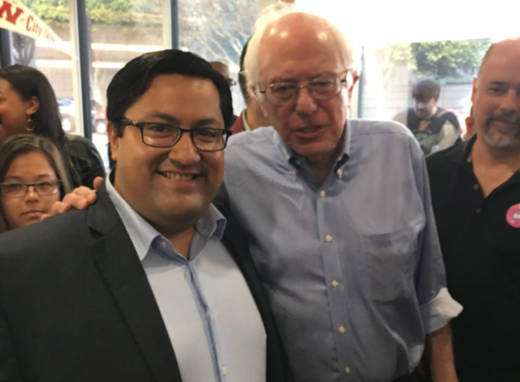Jesse Arreguín, 32, decisively won the mayorship in yesterday’s election, becoming the youngest-ever and first Latino Berkeley mayor.
To close observers of Berkeley’s local politics, the chattering started over the last several weeks of the election. First, Jesse Arreguín won the endorsement of Vermont Sen. Bernie Sanders, as well as the Sierra Club and the Alameda County Democratic Party. Then there was word of thousands of new voter registrations on the UC Berkeley campus.
After 14 years of Mayor Tom Bates and his secure City Council majority, could council member Arreguín best Bates’ handpicked successor, council member Laurie Capitelli?
It didn’t take long for the results on Tuesday night to answer that question. When the Alameda County Registrar of Voters produced the first data shortly after 8 p.m., Arreguín already led Capitelli. As long-shot mayoral candidate Ben Gould explained to Berkeleyside, those results, largely from early mail-in ballots, usually reflect more of the “hill” vote, which Capitelli supporters had hoped to win decisively.
As the night wore on, Arreguín’s lead only grew. The final uncertified results found Arreguín with 15,912 votes (47.4 percent) to Capitelli’s 11,283 (33.6 percent). Through six rounds of ranked-choice voting, Arreguín moved closer and closer to the necessary majority. Ironically, it was only when Gould — the candidate probably most closely aligned to Capitelli and the former council majority — was eliminated that Arreguín triumphed with 51.9 percent of the vote (Arreguín received more of Gould’s second-choice votes than Capitelli, incidentally: 329-297).

